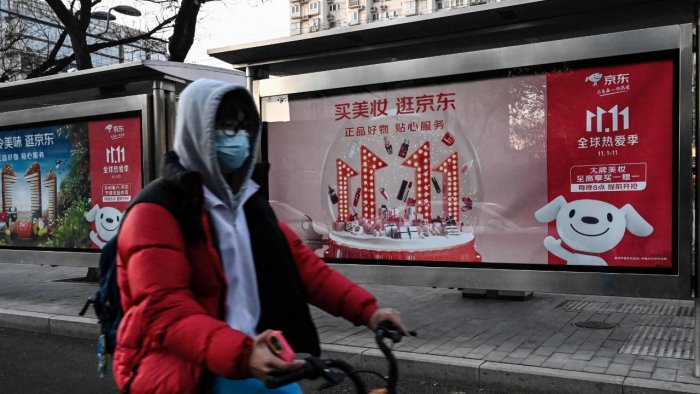China’s annual Singles’ Day shopping binge was conducted in a more muted manner this year, devoid of the typical bragging about sales volume, as the country’s chastened e-commerce industry maintained a lower profile in the wake of a government crackdown on platforms such as Alibaba and Tencent.
Every year since its inception, the world’s largest shopping festival has been accompanied by aggressive advertisements and frenzied hourly updates from industry leader Alibaba, documenting ever-increasing sales statistics that are equivalent to the yearly GDP of numerous countries.
However, as of lunchtime Thursday, there were no rolling tallies or victorious statements from executives from key platforms, and the whole incident was completely ignored by state-controlled media, a sign that the frantic prior sales frenzy may be a thing of the past.
“Single’s Day,” so named because it occurs on November 11th, originated more than a decade ago and was formerly celebrated as a one-day, 24-hour event.
However, Alibaba and its competitors have extended the campaign to include a weeklong period from November 1-11, while other stores and platforms began offering discounts, special deals, and pre-sales as early as October to attract customers.
“Singles Day” in the United States eclipses the pre-Christmas “Black Friday” campaign and has become as a widely followed measure of consumer mood in the world’s second-largest economy.
Alibaba and its nearest rival, JD.com, recorded combined sales of 115 billion dollars last year on their respective online marketplaces.
The government has targeted web companies for suspected exploitation of user data and monopolistic business methods, but it also seems to be driven in part by broader fears that Big Tech has become too strong and uncontrolled in the last several decades.
Alibaba had earlier said that hundreds of brands have seen a stronger start from November 1 compared to the same period the previous year, but did not provide any specific figures.
Big heavyweights such as Alibaba, Tencent, and JD have been rocked by government inspection, with their stock prices plummeting by billions of dollars. However, analysts believe the governing Communist Party will not seriously impede ecommerce in the near future.
This is a long-term push to shift China’s economy away from its over-reliance on manufacturing, exports, and government investment and toward one that is more market-based and consumer-driven.
The Chinese government is promoting a new “shared prosperity” concept that takes aim at the super-rich and excessive corporate power, while advocating for a more fair sharing of the country’s economic advantages, according to Reuters.
Particularly targeted by the government are methods utilised by Alibaba and JD.com, such as prohibiting merchants from selling their items on other platforms and using algorithms to flood customers with suggestions for more purchases.
Yesterday, the government released special “Singles’ Day” instructions, warning online retailers and platforms that making false promises about discounts or product effectiveness, manipulating sales data, and selling counterfeit items were all absolutely illegal during this holiday season.
“Single’s Day” is generally a major deal in China, but it was largely disregarded on Thursday, with many leading state-run media sites devoting their attention instead to the 62nd anniversary of the creation of China’s air force, which occurs on the same day.

